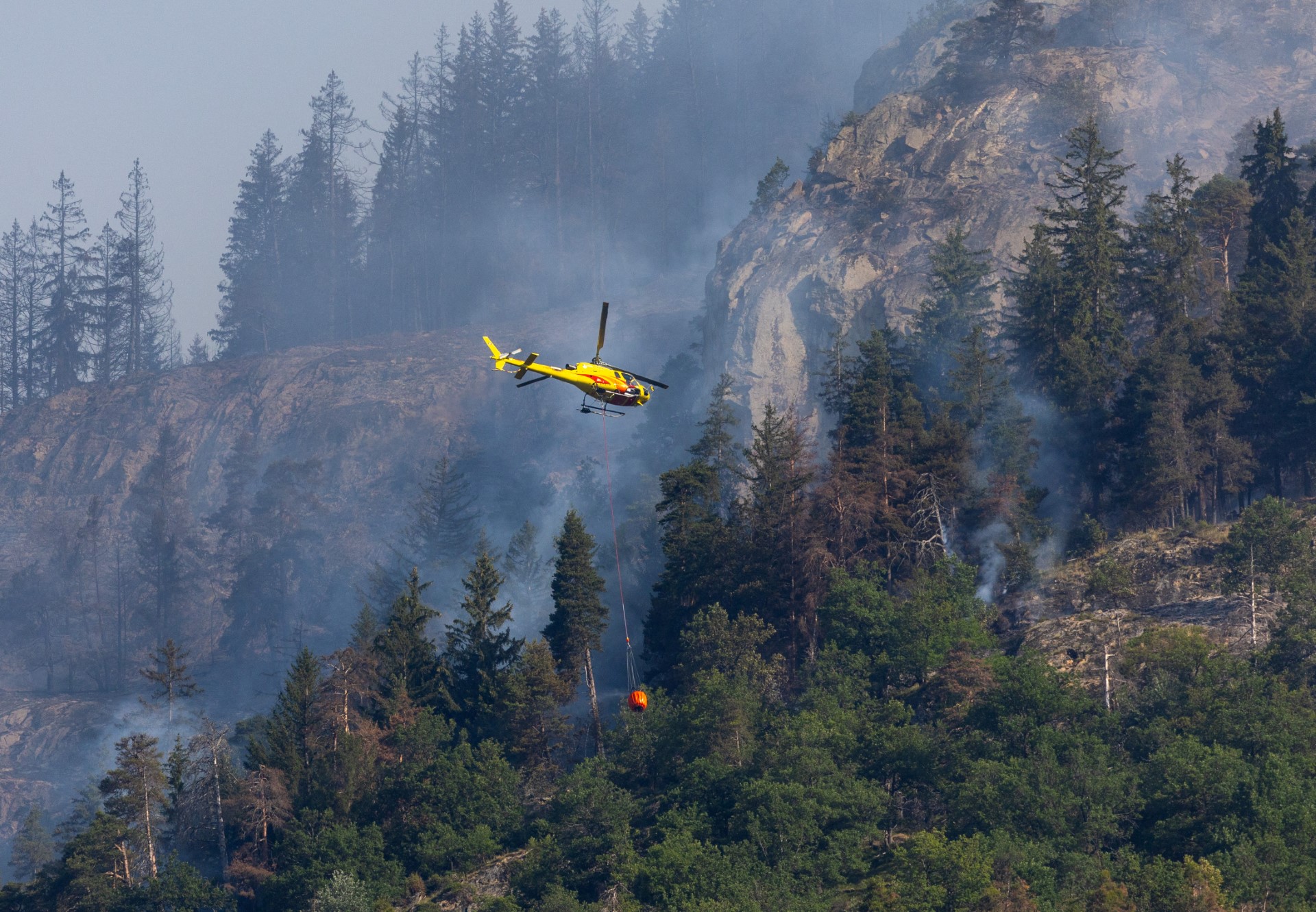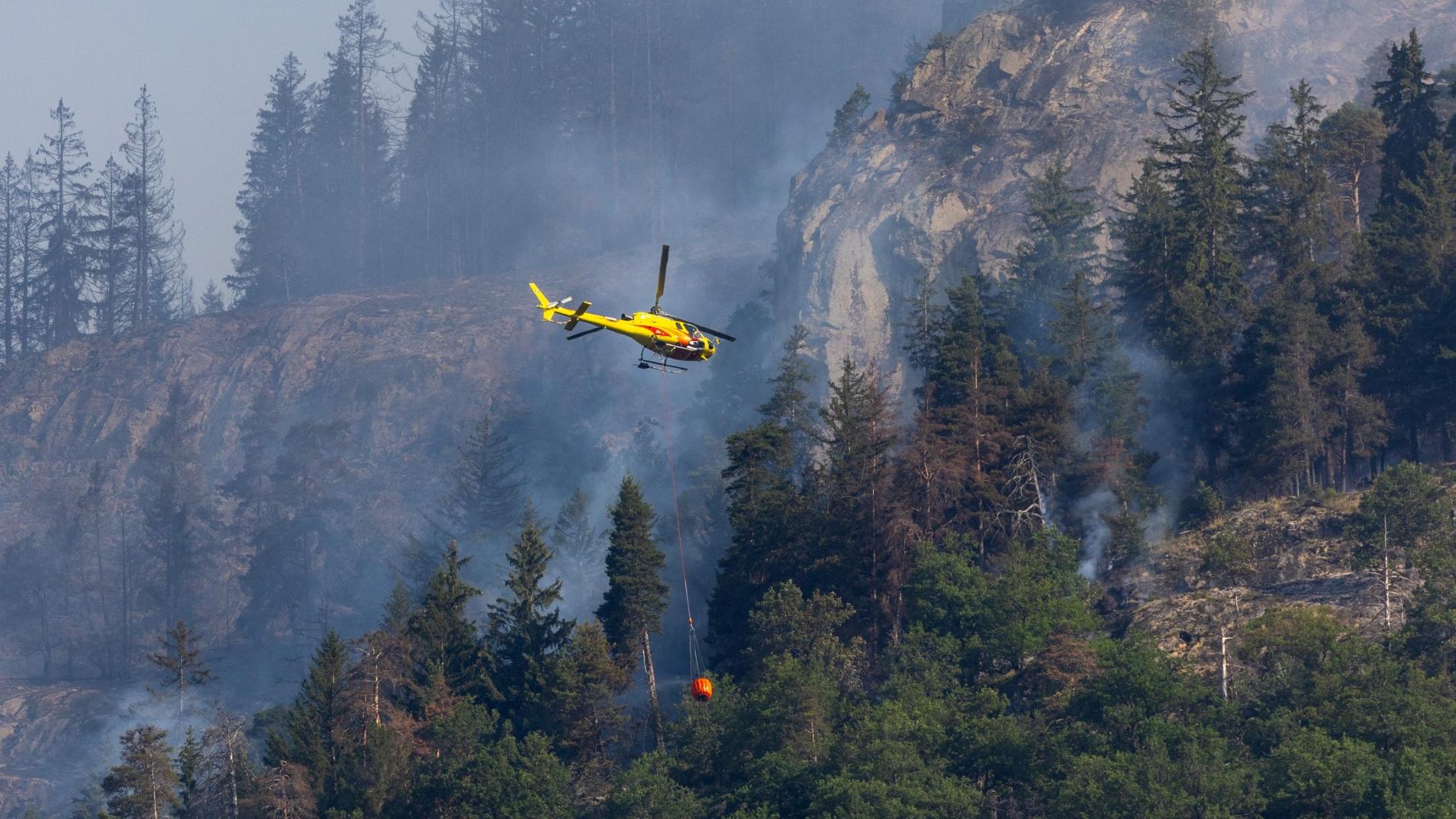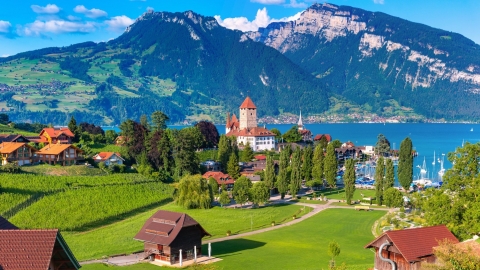According to the German news agency DW, images of tourists fleeing fires on the Greek island of Rhodes and wildfires raging out of control in Sicily, Italy, were the main topics of European media last week, raising questions about whether the Mediterranean region remains a popular summer holiday destination.
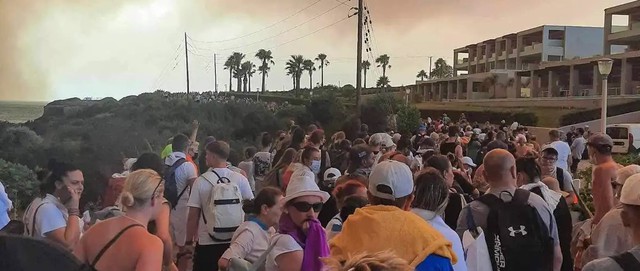
A wildfire in Rhodes spiraled out of control in July, making the emergency evacuation of tourists from the Greek island necessary. Photo: AFP
The Mediterranean is particularly affected.
Scientists are convinced that extreme weather events, such as heatwaves, will occur more frequently in Europe in the future. According to the World Meteorological Organization (WMO), the area surrounding the Mediterranean Sea is warming particularly rapidly.
In April 2023, extreme temperatures were recorded in Spain; and the July heatwave was recorded as the longest in history in Greece.
In July alone, more than 50,000 hectares of forest were burned in Greece, almost half the size of the German capital, Berlin. According to data from the European Forest Fire Information System (EFFIS), fires in Spain had already reached this level by early April.
Over the past year, an area of forest, approximately 800,000 hectares, equivalent to the size of Montenegro, has been destroyed by fire within the European Union (EU). Janez Lenarcic, the EU Commissioner for Humanitarian Assistance and Crisis Management, stated in January 2023 that the estimated losses were at least 2 billion euros.
Where there are wildfires, GDP decreases.
Uncontrollable wildfires raging for days not only cause devastating consequences for nature but also destroy livelihoods and damage the economy.
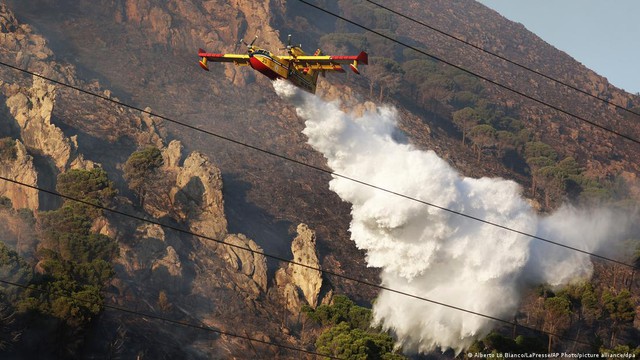
The EU has doubled its aerial firefighting capacity by 2023 to prevent similar or even worse disasters in the future. Photo: AP
Sarah Meier, who studies extreme weather events and the economic impact of wildfires at the University of Birmingham (UK), says that wherever wildfires are rampant, the gross domestic product (GDP) decreases.
"Employment figures in the tourism industry show that fewer people are employed after the fires," she told DW.
According to DW, within the 27-member EU bloc, countries affected by wildfires can request assistance from Brussels. For example, more than 500 firefighters from other countries have been deployed to Greece, and the EU has also sent nine additional firefighting aircraft. All of this is protected by the EU's disaster relief mechanism.
Furthermore, reconstruction funds could be raised through an EU solidarity fund; however, the European Parliament would have the final say.
Fires and tourism in southern Europe
DW notes that the tourism industry is perhaps as important to Greece as the automotive industry is to Germany. Approximately 20% of Greece's economic output comes from tourism. In Spain and Italy, the figures are 12% and 9%, respectively.
However, international rating agency Moody's recently warned that tourist destinations in Southern Europe could lose their appeal in the long term due to heatwaves and wildfires, harming the economy.
Moody's predictions, based on climate models, suggest that coastal regions as tourist destinations will see a significant decrease in visitor numbers under various warming scenarios, while many northern countries may attract more tourists.
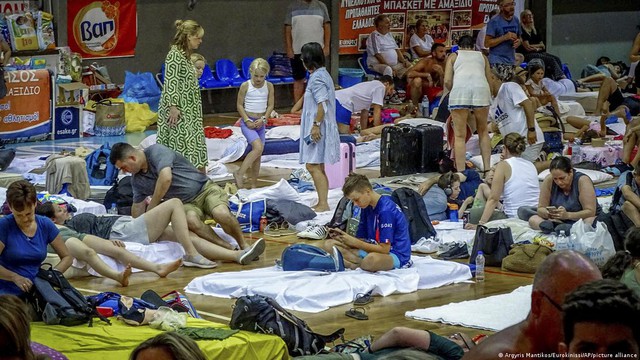
The 2023 summer holidays in Greece have come to an end. Photo: AP
Harald Zeiss, director of the Institute for Tourism Research at Harz University (Germany), said that although climate models predict heatwaves, droughts, and wildfires, "tourism in the Mediterranean region will not collapse overnight." He predicted that tourist seasons could shift, as visitors might prefer to holiday in the Mediterranean in spring or autumn rather than summer.
Petro Beritelli, an expert at the Centre for Travel and Transport Research at the University of St. Gallen (Switzerland), said: "Wildfires and other extreme events are seen by people as isolated regional events and not as a deterrent [to tourism], as people tend to forget about them." He told DW that destinations like Dubai and Las Vegas show that extremely high temperatures do not deter people from traveling to such places.
Innovation to rescue the tourism industry.
Johann Goldammer, Director of the Global Fire Monitoring Centre (GFMC) in Freiburg, Germany, has proposed more improvements to prevent wildfires in the long term.
He told DW: "Due to urbanization, there is too much land left fallow, and when climate change, coupled with droughts and heatwaves, exacerbates this situation, wildfires become inevitable."
Goldammer argues that tourism should become "more sustainable and involve everyone, for example, supporting Greek farmers in their olive groves or vineyards."
Following the devastating wildfires on the Greek island of Euboea in 2021, Goldammer presented his proposals to the Greek government. These included the concept of long-term land use and fire prevention measures. Goldammer stated that instead of focusing solely on strengthening firefighting capabilities, prevention should be prioritized.
Portugal implemented specific measures following the devastating wildfires of 2017. In an effort to prevent further fires, one of the measures implemented by the government was a ban on replanting eucalyptus trees due to their high flammability. The latest data from EFFIS shows that the fires in Portugal were less severe than in Spain, Italy, and Greece.

 VI
VI EN
EN



